Suchergebnisse
Analysis and evaluation of structural additional costs for passive house projects
Structural extra costs of passive houses decide whether these will become accepted at the market. Within the project the costs of several "Building of tomorrow" passive houses were compared. The results enable estimations for future passive house projects.
BIGMODERN - Subproject 4: Life-cycle cost analysis (LCCA) during the planning process
Creation of technical and organisational preconditions for constructors to integrate life-cycle cost analysis (LCCA) already into the planning process. Furthermore, the findings will be applied within the two demonstration projects of the flagship project BIGMODERN (SP2 and SP3). The publication of fundamental results makes conceptive basics and LCCA-results available for all stakeholders in the real estate industry.
Walchfenster04 - from a functional model to a serial production-oriented prototype
Technical preparation of the functional model from the window and facadesystem walchwindow04 to a serial production-oriented prototype. Developing the new production processes and technologies
Innovative filtering technology for fine dust emissions of wood-burning furnaces
Securing the future of low-emissions wood-burning furnaces in a range up to 1000 kW by using innovative filtering technology (which is also attractive in terms of economic efficiency) to nearly completely eliminate fine dust emissions.
Energy services for the optimised summer utilization of district heating systems
Development of practicable energy services for the summer utilization of district heating systems with reference to existing technologies to improve the efficiency and potentialities for the integration of renewable energy.
Competition for prefabricated house producers to design types of attached houses
A competition for the builders of prefabricated houses provided new design-types of attached houses. The results have been awarded and published to encourage the participants to enter this segment of the market.
IEA 4E Annex: Electric Motor Systems Task 3: New Industrial Developments and Digitalisation (Working period 2021 - 2024)
In Task 3 of the Electric Motor Systems Annex "New Industrial Developments and Digitalisation", the development of technical and political recommendations for the use of digital technologies for increased energy efficiency in electric motor systems is planned. For this purpose, industrial use cases will be described, user interviews conducted and policy instruments analysed.
IEA SHC Task 66 Solar Energy Buildings - Industry Workshop
29. September 2022
Kassel, DE
Solar thermal and/or PVT combined with heat pump as a future CO2-neutral energy supply concept
Post Combustion Capture Conference (PCCC-7)
25. - 27. September 2023
Station Square Sheraton, Pittsburgh (PA), USA
This conference aims to be a forum to discuss the various issues related to post-combustion capture technologies status and development. For the 7th time, the most diverse aspects of these processes will be discussed during a three-day international conference
IEA SHC Task 65 Expert Meeting & Industry Workshop
23. March - 24. March 2023
Fakultätsratssitzungsaal, SOWI 3OG, Universität Innsbruck, Innrain 52, 6020 Innsbruck, AT
The regular Expert Meeting of IEA SHC Task 65 focuses on innovations in solar cooling for global Sunbelt regions and will be followed by an industry workshop on solar cooling.
Transfer conference "Alpine hut of Tomorrow" pilot project "Schiestlhaus"
The aim of the event was an open in-depth discussion with and for experts of the alpine clubs in order to evaluate the pilot project "Schiestlhaus" and to identify usable approaches for sustainable buildings in the alpine area.
Renewable Energy World Europe Conference and Exhibition
4. - 6. June 2013
Vienna, Austria
Renewable Energy World Europe, co-located with POWER-GEN Europe, offers the largest and most comprehensive conference and exhibition for the European electricity and power technology sector.
International Conference for Enhanced Building Operations
18th - 20th October 2011
New York Marriott at the Brooklyn Bridge
New York City, US
The ICEBO brings together an international group of practitioners, policy makers, and researchers who routinely improve the health and comfort and minimize the energy consumption, operating costs, and environmental impacts of buildings.
Workshop: The Role of Storage in Energy System Flexibility
22. - 23. Oktober 2014
German Federal Ministry of Economic AffairsScharnhorststraße 34-37, 10115 Berlin, DE
This workshop will focus on the evolving nature of the grid, with the goal of identifying novel approaches, RD&D needs, other areas not well covered but needing attention, and innovative case studies related to electricity storage in a flexible electricity grid of the future.
IEA Demand Side Management Programme - Newsletter #52, 02/2014
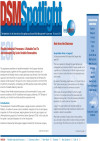
Herausgeber: IEA Demand Side Management Programme
Englisch, 13 Seiten
Downloads zur Publikation
IEA Demand Side Management Programme - Newsletter #54, 10/2014
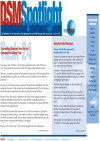
Herausgeber: IEA-Demand Side Management
Englisch, 7 Seiten
Downloads zur Publikation
IEA Demand Side Management Programme - Newsletter #51, 12/2013
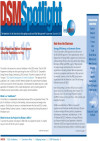
Herausgeber: IEA-Demand Side Management
Englisch, 7 Seiten
Downloads zur Publikation
Facade-Integrated Thermal Solar Installations
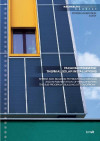
System and building physics fundamentals and implementatio of results within the subprogram "Building of Tomorrow"
Forschungsforum
3/2001
Herausgeber: BMVIT
Englisch, 6 Seiten
Downloads zur Publikation
IEA Bioenergy Task 39 Newsletter #40 (August 2015): Neuseeland
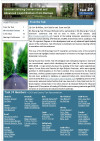
Diese Ausgabe des Newsletters beinhaltet neben Neuigkeiten aus des Tasks, interessanten Berichten, Veranstaltungen und News, einen Schwerpunktartikel über die Entwicklungen im Biotreibstoffbereich in Neuseeland.
Herausgeber: IEA Bioenergy Task 39
Englisch, 13 Seiten
Downloads zur Publikation
IEA Demand Side Management Programme - Newsletter #55, 12/2014
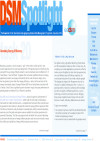
Herausgeber: IEA Demand Side Management Programme
Englisch, 11 Seiten
